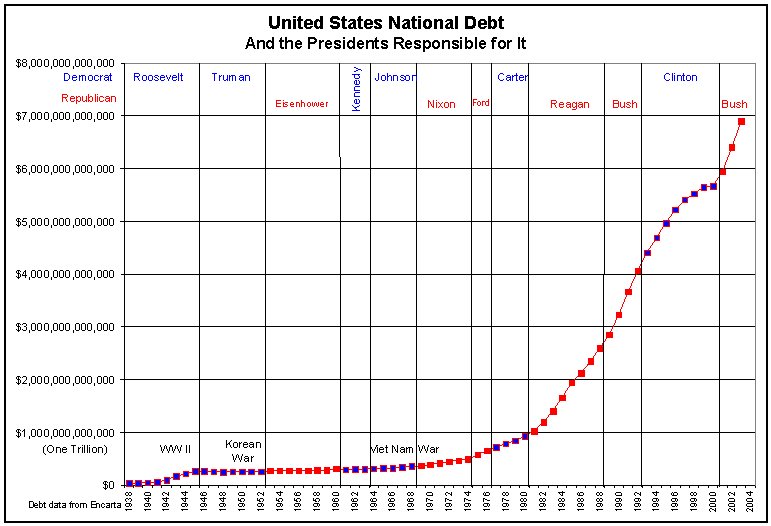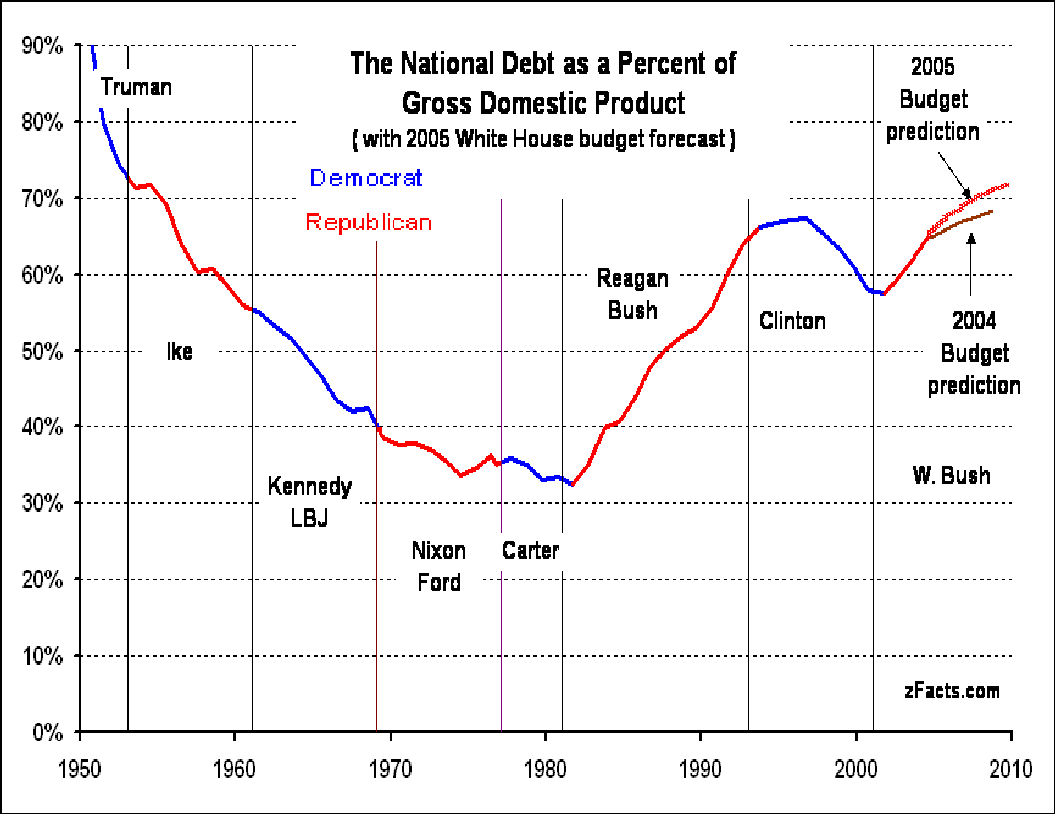See other (s)Elections Articles
Title: Obama's Ill-Timed Tax Increases and Economic Ignorance
Source:
RNC
URL Source: http://www.youtube.com/watch?v=QNMIwx6bGvs
Published: May 22, 2008
Author: RNC Staff
Post Date: 2008-05-22 20:49:45 by Horse
Keywords: None
Views: 176
Comments: 9
Post Comment Private Reply Ignore Thread
Top • Page Up • Full Thread • Page Down • Bottom/Latest
Begin Trace Mode for Comment # 4.
#3. To: Horse (#0)
Here is the fact. During a recession tax breaks/cuts should be given to those who will spend the money - consumers. Unfortunately, the neocons still play the supply-side tax game which has been proven to be a disaster during weak economic times. bush and the neocons have virtually destroyed our economy and financial position because of their supply-side tax programs. The Reagan years proved that supply-side tax cuts when the economy is weak can substantially damage the economy and undermine a recovery. Economy is weak/recession - give tax cuts to those who will spend them - increase demand which reduces inventories and creates new jobs and substantially helps the tax base. End result - lower unemployment, better wages and lower taxes. Supply-side tax cuts have a negative impact. Economy is strong - supply-side tax cuts will further boost the economy because demand exceeds supply and wealthy investors and business people are looking for another/cheap source of funds to expand their business to meet the excess demand. Creates jobs and helps the tax base. Somebody has to make up for the disasterous neocon financial/economic legislation they pushed through the past 7 years. Might as well be those who benefitted most from it.
There is no need to raise taxes. Abolish the Federal Reserve and its 759 billion dollar a year subsidy. Audit federal government spending and save 200 billion dollars a year. I repeat. There is no reason to raise taxes. I haave given enough money to the rich.
#7. To: Horse (#4)
This has nothing to do with Obama. When economy is weak give tax cuts to those who will spend it - working class. Don't give it to the upper class because there is no incentive for them to use it to hire or create jobs. In fact, most of them end up investing it in places (offshore etc) where it does nothing. Give tax cuts to the working class and do away with the bush tax cuts. The bush supply side tax cuts are why we had the one of the weakest recoveries in more than 75 years, why wages have stagnated and the real income has become the worst it has ever been. Worst job recovery and because of the way part time, temporary jobs and underemployment are classified with respect to unemployment the real unemployment rate is closer to 7.5-8%. I'm still amazed that some people still try to claim the Reagan economic policies were a success. Not even close. media.washingtonpost.com/wp-dyn/images/I27480-2004Jun9 When Kennedy took office the unemployment rate was 6.6% & 3.4% when Nixon came into office. When Clinton took office unemployment was 7.4% and 3.9% when he left. The average rate of unemployment from 1961 thru 1968 was 4.8%, under Clinton it was 5.2%. When Reagan took office unemployment was appx 7.5% and when he left it was 5.4%. The average unemployment rate during the Reagan years was 7.1%. In January 1981, when Reagan whined the federal budget was "out of control," the deficit had reached almost $74 billion, the federal debt $930 billion. Within two years, the deficit was $208 billion. The debt by 1988 totaled $2.6 trillion. In those eight years, the United States moved from being the world's largest international creditor to the largest debtor nation. Productivity statistics: annual average productivity growth rates according to the Bureau of Labor Statistics 1950-1963: 3.5%; 1964-1980: 2.2% 1981-1986: 2.1% 1987-1992: 1.7% 1993-2002: 2.1% www.bsherman.org/rushmore.html In 1983, Mr. Reagan signed legislation raising the Social Security tax rate. This is a tax increase that lives with us still, since it initiated automatic increases in the taxable wage base. As a consequence, those with moderately high earnings see their payroll taxes rise every single year. The following year, Mr. Reagan signed another big tax increase in the Deficit Reduction Act of 1984. This raised taxes by $18 billion per year or 0.4 percent of GDP. A similar sized tax increase today would be about $44 billion. The Consolidated Omnibus Budget Reconciliation Act of 1985 raised taxes yet again. Even the Tax Reform Act of 1986, which was designed to be revenue- neutral, contained a net tax increase in its first 2 years. And the Omnibus Budget Reconciliation Act of 1987 raised taxes still more. The year 1988 appears to be the only year of the Reagan presidency, other than the first, in which taxes were not raised legislatively. Of course, previous tax increases remained in effect. According to a table in the 1990 budget, the net effect of all these tax increases was to raise taxes by $164 billion in 1992, or 2.6 percent of GDP. This is equivalent to almost $300 billion in today's economy.
Top • Page Up • Full Thread • Page Down • Bottom/Latest
#4. To: bush_is_a_moonie (#3)
Replies to Comment # 4. 

End Trace Mode for Comment # 4.